#F. Sionil Jose
Explore tagged Tumblr posts
Note
anonymous assumption:
english/literature/language and related stuff were probably your favourites in school
definitely! (..◜ᴗ◝..) my all-time college favorite was english literature, and i suffer from the age-old trope of having that one english teacher you got weirdly attached to </3

#── ᵎᵎ ✦ inbox#[ said english teacher introduced me to jd salinger/f sionil jose/etc. so u know how it is ]#[ i loved college english lit so much that i beadled for two semesters HAHA ]#[ it's also the subject i'm trying to teach!! lore drop upon lore drop ]
6 notes
·
View notes
Text
THE MASTERFUL ARTIFACT THAT IS, ‘BALETE’
One Saturday, I was in a forest and ended up being transported into Chris Millado’s visionary direction for ‘BALETE’, and I have never seen anything like it. Once I entered this blackbox theatre in CCP, it was as if I was a stranger in sheer terror, with no idea where I would end up. Then there was light. The well-lit stage then transitioned, bringing forth these thespians exploring time and space. One time, one color usage of stage lighting by Roman Cruz was significant enough to illustrate one quote from National Artist for Literature F. Sionil Jose that, indeed, they wrote the land with their blood — a revelation that illuminated in an innovative round set design by Wika Nadera.
And I was seated. In other words, not once did I yawn in this mystical place. You’ll see something beautifully disturbing, it confronts you right there and then. Especially Nonie Buencamino’s characters from a twelve-year old haciendero and his father, Don Espiridion - then comes his adult version, shifting vis-à-vis like the air blowing you’ll hear from the farthest seat in a huge theatre known for its great reverberation — in other words, his acting chops with superb nuances underscored a one-for-the-ages performance, as he narrates the parts of his early years. The same goes for these ensembles, unfolding the mysteries of their characters and shedding light on their encounters wherever they may be. The ensembles, likewise, were the props, the stage crews, and even the set, all executed seamlessly.
To be fair, this is the first Tanghalang Pilipino that I watched this year. And, in summation, it’s one of the classics brought to life, which I call, from now on, the rarest of phenomena. This production of ‘BALETE’ greatly reflects at a time of futile and shameless greed. Happy closing, Balete! Mabuhay ang Teatrong Pilipino!



2 notes
·
View notes
Text
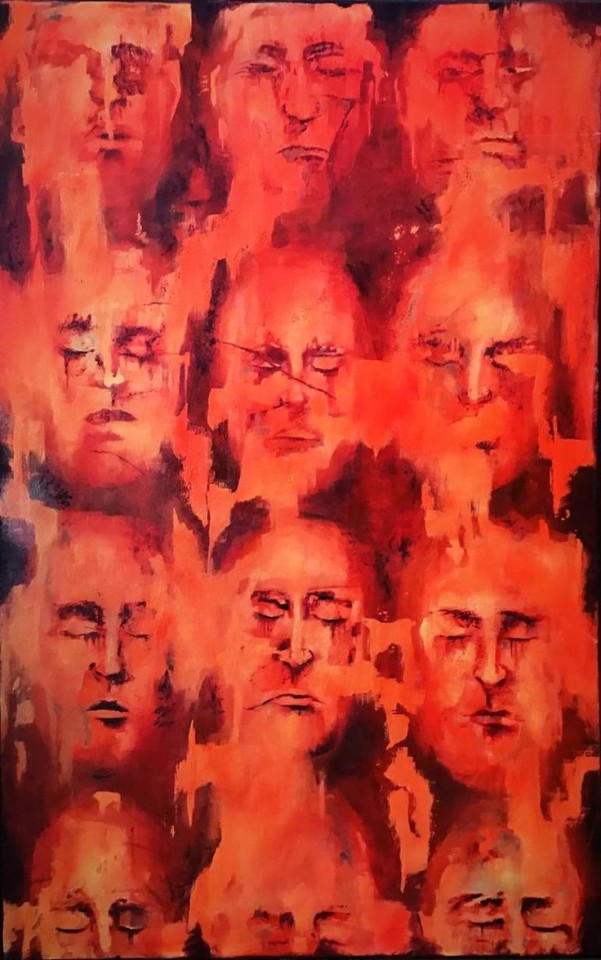
2 remarkable writers in different period and their contribution.
Period of Activism:
Lualhati Bautista - is a Filipino writer and feminist who wrote about the struggles of women and marginalized sectors during the Martial Law era. Her most famous work, Dekada '70, is a novel about a middle-class family's experiences during the Martial Law period.
Jose "Pete" Lacaba - is a Filipino writer, journalist, and activist who wrote about the social and political realities of the Philippines during the Martial Law period. His most famous work, Days of Disquiet, Nights of Rage, is a collection of poems and essays that document the protests and political repression of the era.
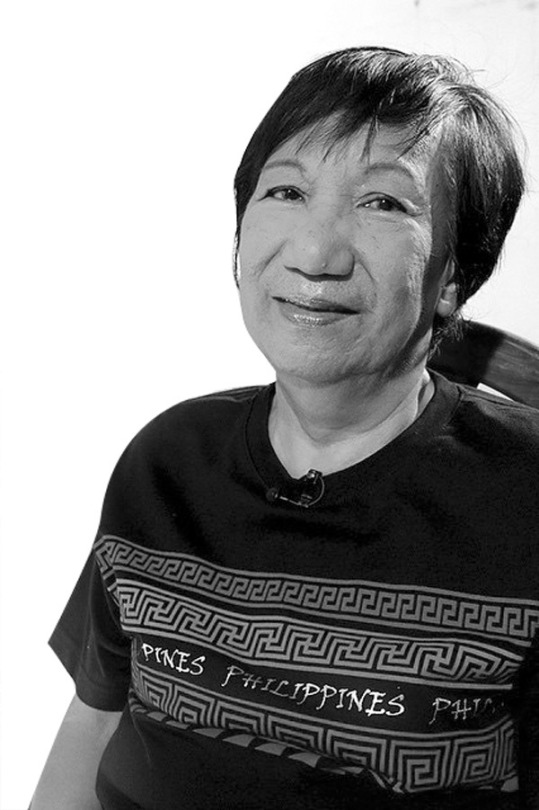
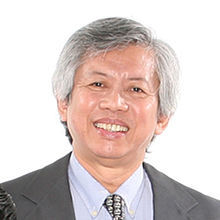
Period of New Society (1972-1986):
Jose Garcia Villa - He was a poet, short story writer, and literary critic who was known for his distinctive use of punctuation, which he called "comma poems". Villa's literary contributions during the period of the New Society include his collection of poems entitled "Selected Poems and New" and his book "Doveglion: Collected Poems".
Nick Joaquin - He was a prolific writer and journalist who wrote novels, plays, essays, and short stories. Joaquin's literary contributions during the period of the New Society include his novel "The Aquinos of Tarlac: An Essay on History as Three Generations", which explores the history of the Aquino family, and his collection of essays entitled "Culture and History".
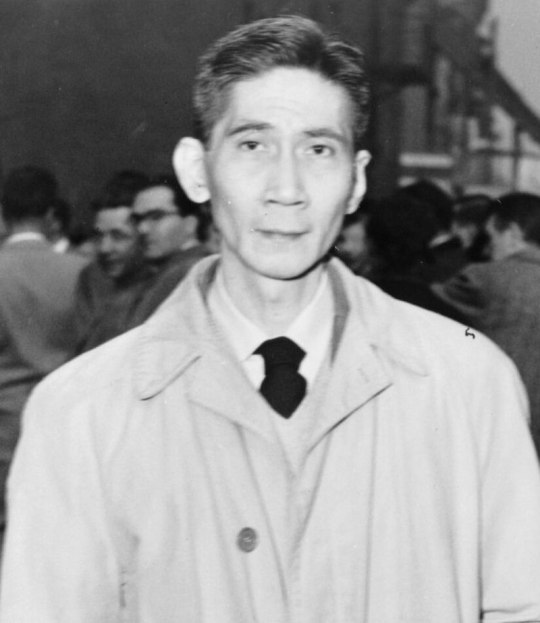
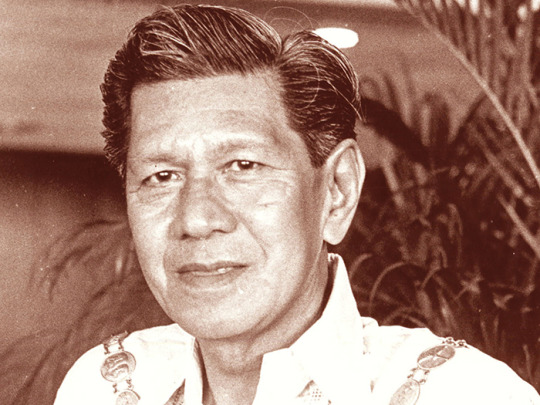
Period of Third Republic (1965-1972):
N.V.M. Gonzalez - He was a writer and critic who wrote novels, short stories, and essays. Gonzalez's literary contributions during the period of the Third Republic include his novel "The Bamboo Dancers" and his collection of essays entitled "The Novel of Justice: Selected Essays 1968-1994".
Francisco Arcellana - He was a poet, essayist, and short story writer. Arcellana's literary contributions during the period of the Third Republic include his collection of short stories entitled "The Mats" and his novel "Selected Poems".
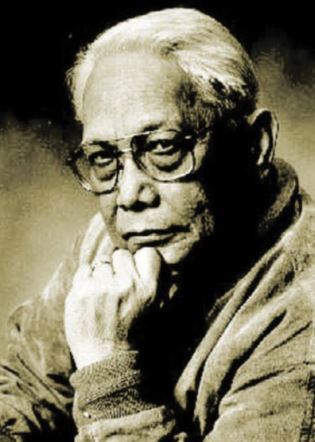
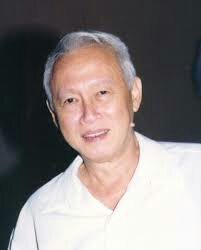
Post-EDSA 1 Revolution (1986-present):
F. Sionil Jose - He is a novelist and essayist who is best known for his series of novels collectively called "The Rosales Saga". Jose's literary contributions after the EDSA 1 Revolution include his novel "Po-on" and his collection of essays entitled "In Search of the Word: Selected Essays".
Jessica Hagedorn - She is a novelist, playwright, and poet who is known for her works that explore the experiences of Filipino immigrants in the United States. Hagedorn's literary contributions after the EDSA 1 Revolution include her novel "Dogeaters" and her play "The Gangster of Love".
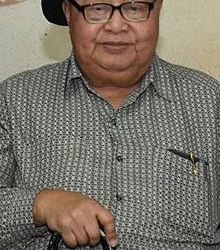
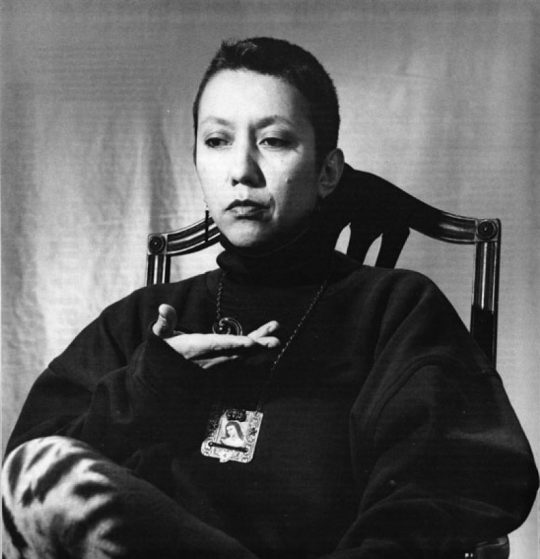
3 notes
·
View notes
Text
Remarkable Writers In Different Periods
Japanese Period
1. Julian Cruz Balmaceda

Julián Cruz Balmaceda, sometimes written Balmaseda, was a Filipino poet, essayist, playwright, novelist, journalist, and linguist who lived from January 28, 1885, to September 18, 1947. He produced a number of works in Spanish, English, and Filipino.
reference:
2. Jose Ma. Hernandez

Both a writer and a teacher, Jose Maria Hernandez. In America, he pursued acting and writing studies. His most well-known piece is the three-act historical drama Panday Pira.
the other plays Jose Ma wrote. Night Wind, Sunrise in the Farm, The Empty House, Prelude to Dapitan, and White Sunday are some of the plays by Hernandez that are based on the Bible.
The play White Sunday took home the literary Palanca Memorial Award.
reference: https://tl.m.wikipedia.org/wiki/Jose_Maria_Hernandez
Philippine Literature Period
1. Jose Carcia Villa

Jose Garca Villa was a Filipino poet, literary critic, short story writer, and painter who lived from August 5, 1908, to February 7, 1997. He was given the National Artist of the Philippines title for literature in 1973[2][3] and the Guggenheim Fellowship in creative writing by Conrad Aiken[4]. He is credited with introducing the "reversed consonance rhyme scheme" in poetry writing as well as the extensive use of punctuation, particularly commas, which earned him the moniker "Comma Poet"[5]. He wrote under the pen name Doveglion (derived from "Dove, Eagle, Lion") Another poet, E, also looked into these creatures. Villa is honored in the poem "Doveglion, Adventures in Value" by E. Cummings.[3]
reference: https://en.m.wikipedia.org/wiki/Jos%C3%A9_Garc%C3%ADa_Villa
2. Rodolfo Dato

Bicolano poet and educator Rodolfo Guevarra Dato. He produced tunes with an English sound. He became the dean of the University of Nueva Caceres and is Luis Dato's elder brother. He also published essays on Bikolnon culture. He compiled and edited Filipino Poetry, one of the most well-known anthologies of English poets, in 1924.
reference: https://bcl.m.wikipedia.org/wiki/Rodolfo_Dato
The New Society
1. Anciento Silvestre
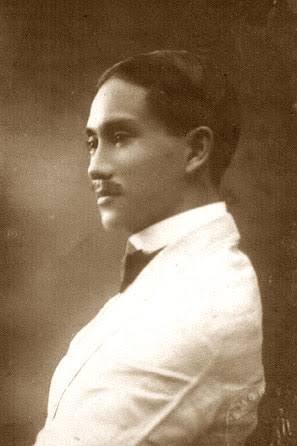
Despite not having received any formal training in writing, he was still able to produce beautiful poems, short stories, novels, and essays that contributed to the literature of the Philippines.
Eight categories in which his poems are categorized are found in the Nature collection: Free, Moving, Image of Life, Pulse of Love, Strong of Faith, Sign of Hope, Open to the Path of Greatness, and Blood in the Light of Sun.
Aniceto F. Silvestre won four First Prizes for his poetry before the war, a Third Prize for his work while under the Commonwealth government, a First Prize in the tenth year of the Republic of the Philippines, and a First Prize at the 1969 Palanca Memorial Awards for Literature.
reference: https://tl.m.wikipedia.org/wiki/Aniceto_Silvestre
2. Pelagio Cruz
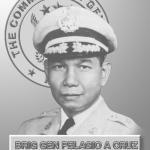
The first Chief-of-Staff from the Philippine Air Force to serve in the Armed Forces of the Philippines was Pelagio A. Cruz (June 16, 1912 – October 21, 1986).
reference: https://en.m.wikipedia.org/wiki/Pelagio_Cruz
The Period of Third Republic Philippines Literature (1965-1972)
1. N.V.M. Gonzalez
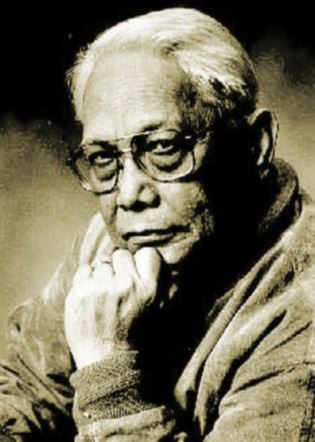
Gonzalez was a novelist and short story writer who is considered one of the pioneers of modern Philippine literature. His works often dealt with rural life and the struggles of the working class, and he was known for his vivid descriptions and lyrical prose. Gonzalez's contribution to Philippine literature was in his portrayal of the everyday lives of ordinary Filipinos, and his use of vernacular language and local settings in his writing.
reference: https://en.m.wikipedia.org/wiki/N._V._M._Gonzalez
2. F. Sionil Jose
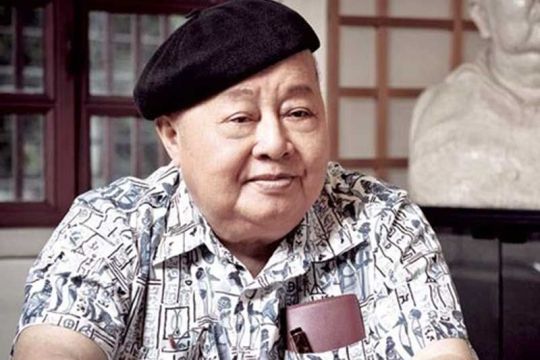
Jose was a novelist and journalist who is known for his epic historical novels that explore Philippine society and politics. His works often deal with issues of poverty, social injustice, and corruption, and he is considered one of the most important writers in Philippine literature. Jose's contribution to Philippine literature was in his critical examination of Philippine society and his efforts to expose the corruption and injustices that plague it.
reference: https://en.m.wikipedia.org/wiki/F._Sionil_Jos%C3%A9
Photo Credits:
1st Img:
https://www.google.com/search?client=ms-android-transsion&sxsrf=APwXEdeh3fEJ-aNLwLWVyG2H1Gu4KjrUOQ:1683042906425&q=julian+cruz+balmaceda&tbm=isch&sa=X&ved=2ahUKEwjV09C0_9b-AhVDEnAKHWLvAV8Q0pQJegQIDBAB&biw=360&bih=728&dpr=3#imgrc=rp-VeXX39fK64M&lnspr=W251bGwsbnVsbCxudWxsLG51bGwsbnVsbCxudWxsLG51bGwsbnVsbCxudWxsLG51bGwsbnVsbCxudWxsLG51bGwsbnVsbCxudWxsLG51bGxd
2nd Img:
https://www.google.com/imgres?imgurl=https%3A%2F%2Fupload.wikimedia.org%2Fwikipedia%2Fcommons%2F2%2F2d%2FJose_Maria_Hernandez_%2528cropped%2529.png&tbnid=lm88ETGpDRKXxM&vet=1&imgrefurl=https%3A%2F%2Fcommons.wikimedia.org%2Fwiki%2FFile%3AJose_Maria_Hernandez_(cropped).png&docid=m2shDy1ECOyezM&w=266&h=401&source=sh%2Fx%2Fim
3rd Img:
https://www.google.com/search?q=jose+garcia+villa&oq=&aqs=chrome.4.69i58j69i176j69i64j35i39i362i523l3j46i39i362i523l3j35i39i362i523l4j46i39i362i523l2.-1j0j4&client=ms-android-transsion&sourceid=chrome-mobile&ie=UTF-8#imgrc=CGPmkqI7nsXTDM&lnspr=W251bGwsbnVsbCxudWxsLG51bGwsbnVsbCxudWxsLG51bGwsbnVsbCxudWxsLG51bGwsbnVsbCxudWxsLG51bGwsbnVsbCxudWxsLG51bGxd
4th Img:
https://www.google.com/imgres?imgurl=https%3A%2F%2Fluisgdato.com%2Fwp-content%2Fuploads%2F2020%2F05%2Frodolfo-guevara-dato-3.jpg&tbnid=6co6Mp93mhvXlM&vet=1&imgrefurl=https%3A%2F%2Fluisgdato.com%2Frodolfo-dato-biography%2F&docid=BZolhF-r1zKphM&w=925&h=1325&hl=en-US&source=sh%2Fx%2Fim
5th Img:
https://www.google.com/imgres?imgurl=http%3A%2F%2F4.bp.blogspot.com%2F-xckfea8CKj4%2FVrCzk2-6H1I%2FAAAAAAAAALM%2FQzTFcn_ejt8%2Fs1600%2Fjcdejesus1.jpg&tbnid=S42XqT0Xi85r_M&vet=1&imgrefurl=http%3A%2F%2Fbsit1a-pilipinas-sining-panitikan.blogspot.com%2Fp%2Fblog-page.html&docid=MGnu2VpXdvHzFM&w=297&h=446&source=sh%2Fx%2Fim
6th Img:
https://www.google.com/search?client=ms-android-transsion&hl=en&sxsrf=APwXEdceZGInGd3oc8u6oiLdBIktPtTZGw:1683044736143&q=pelagio+sulit+cruz&tbm=isch&sa=X&ved=2ahUKEwi7642dhtf-AhVRx2EKHcgcB6AQ0pQJegQIDRAB&biw=360&bih=728&dpr=3#imgrc=rjS6raSke0zKcM&lnspr=W251bGwsbnVsbCxudWxsLG51bGwsbnVsbCxudWxsLG51bGwsbnVsbCxudWxsLG51bGwsbnVsbCxudWxsLG51bGwsbnVsbCxudWxsLG51bGxd
7th Img:
https://www.google.com/imgres?imgurl=https%3A%2F%2Fenglish.colostate.edu%2Fwp-content%2Fuploads%2Fsites%2F56%2F2017%2F10%2FNVM-Gonzales.jpg&tbnid=mgz3WQDMC0ln0M&vet=1&imgrefurl=https%3A%2F%2Fenglish.colostate.edu%2Fnews%2Ffilipino-american-history-month-n-v-m-gonzalez%2F&docid=UDb9tMnz-nafBM&w=315&h=442&hl=en-US&source=sh%2Fx%2Fim
8th Img:
9th Img:
3 notes
·
View notes
Text

The three pillars of morality are:
"FPJ"
F • Francisco Sionil Jose
P • Professor Randy David
J • Joker Arroyo
—
#Morals
#GuidedByValues
#FPJ
0 notes
Text










Bon Voyage, Thelma Enage Arambulo 🌻 Toronto-based Thelma was a Professor of English and former Department Chair at UP Diliman, as well as Acting Dean at both the Joint Faculty of Social Sciences & Humanities and the Faculty of Science & Technology during the early years of the UP Open University (UPOU). Thelma is a graduate of St. Theresa’s College in Cebu and the University of Pittsburgh and has also taught at the University of San Carlos.
She received the UP Diliman Gawad Chancellor and UP Gawad Leopoldo Yabes for Outstanding Teaching. Her publications include Nation and Culture (with F. Sionil Jose and Edgardo J. Angara, 2012) and Prism: An Introduction to Literature (with Yolanda V. Tomeldan et al., 1986).
Before returning to Canada, over brunch, Thelma shared photos of Filipino writers from her collection when she attended the 6th Silliman University National Writers Workshop (1967) as a fellow for fiction.
Thelma's dedication to language, literature, and education for over 50 years has impacted those she has taught and worked with. For me, her retirement and relocation to Canada over a decade ago signified the end of an era in UP’s English Department. Her legacy as a committed teacher and university administrator resonates with those she has touched ❤️
1 note
·
View note
Text
“Poetry is emotion, passion, love, grief - everything that is human. It is not for zombies by zombies.”
— F. Sionil Jose
0 notes
Text
Five Literary Theories from Philippine Authors
Literature is the mirror through which we can see the world and ourselves." - F. Sionil Jose Literary theories play a crucial role in our understanding and interpretation of literature. They provide us with tools and frameworks to analyze and appreciate the complexities of literary works. In the Philippines, there are several literary theories developed by Filipino authors that shed light on the unique perspectives and experiences of the Filipino people. In this blog post, we will explore five literary theories from Philippine authors that offer valuable insights into the rich literary landscape of the country. 1. Cultural Studies: Cultural studies, as proposed by Filipino theorist Nicanor Tiongson, emphasizes the importance of understanding literature within its socio-cultural context. It recognizes that literature is not created in a vacuum but is shaped by the historical, social, and cultural forces of a particular community. By examining the cultural elements embedded in literary texts, we gain a deeper understanding of the Filipino identity and the issues that resonate within the society. 2. Postcolonial Theory: Postcolonial theory, influenced by the works of Filipino scholars such as Renato Constantino and Epifanio San Juan Jr., examines the effects of colonialism on literature and culture. It challenges the dominant Western narratives and seeks to uncover the voices and experiences of the colonized. Through postcolonial theory, we can analyze how Philippine literature reflects the struggles, resistance, and resilience of the Filipino people in the face of colonization. 3. Feminist Criticism: Feminist criticism, championed by Filipino writers like Soledad Reyes and Judy Taguiwalo, focuses on the representation of women in literature and challenges patriarchal norms and stereotypes. It explores the power dynamics, gender roles, and social constructs that shape female characters and their experiences. By applying feminist criticism, we can uncover the hidden narratives of women in Philippine literature and promote gender equality and empowerment. 4. Queer Theory: Queer theory, influenced by the works of Jose Neil Garcia and J. Neil C. Garcia, examines the representation of non-normative sexualities and gender identities in literature. It challenges heteronormative assumptions and explores the complexities of queer experiences. Through queer theory, we can analyze how Philippine literature portrays LGBTQ+ individuals and their struggles for acceptance and self-expression. 5. Indigenous Literary Theory: Indigenous literary theory, developed by Filipino scholars like Rosario Cruz-Lucero and Maria Josephine Barrios, focuses on the narratives and oral traditions of indigenous communities in the Philippines. It recognizes the importance of indigenous knowledge, cultural practices, and storytelling in shaping literary works. By engaging with indigenous literary theory, we can appreciate the diverse cultural heritage of the Philippines and amplify the voices of marginalized indigenous communities. These five literary theories from Philippine authors provide us with valuable tools to analyze and appreciate Philippine literature. They offer unique perspectives and insights into the Filipino experience, challenging dominant narratives and promoting inclusivity and diversity. By engaging with these theories, we can deepen our understanding of Philippine literature and contribute to the ongoing dialogue about the power and significance of literature in our society.
1 note
·
View note
Text
5ive literary theories from Philippine authors
Colonial discourse analysis: This theory examines how colonialism and its legacy shape the representation and identity of colonized peoples and cultures. One of the Filipino authors who used this theory is Jessica Hagedorn, who explored the effects of American colonialism and neocolonialism on Philippine society and culture in her novel Dogeaters1.
Postcolonial feminism: This theory challenges the universalism and ethnocentrism of Western feminism and highlights the diversity and complexity of women’s experiences in postcolonial contexts. One of the Filipino authors who used this theory is Merlinda Bobis, who portrayed the struggles and agency of Filipino women in various settings and genres, such as her novel Fish-Hair Woman2.
Historical materialism: This theory analyzes the relationship between historical events and the material conditions of society, especially the modes of production and class struggle. One of the Filipino authors who used this theory is F. Sionil Jose, who depicted the history and politics of the Philippines from a Marxist perspective in his Rosales Saga, a series of five novels that span from the Spanish colonial era to the Marcos dictatorship3.
Formalism: This theory focuses on the intrinsic features and structures of literary texts, such as language, style, genre, and narrative techniques, rather than the external factors, such as the author’s biography, the historical context, or the reader’s response. One of the Filipino authors who used this theory is Nick Joaquin, who experimented with various forms and modes of expression, such as the novel, the short story, the essay, the play, and the poem, and who blended elements of realism, modernism, and folklore in his works, such as The Woman With Two Navels4.
Indigenism: This theory emphasizes the importance and value of indigenous cultures, traditions, and knowledge systems, and seeks to recover and revitalize them in the face of colonial and neocolonial domination. One of the Filipino authors who used this theory is Luis Francia, who celebrated and affirmed the diversity and richness of Philippine culture and history in his poetry, essays, and memoirs, such as Eye of the Fish: A Personal Archipelago.
1 note
·
View note
Text
On this day in Wikipedia: Saturday, 6th January
Welcome, ようこそ (yōkoso), willkommen, 欢迎 (huānyíng) 🤗 What does @Wikipedia say about 6th January through the years 🏛️📜🗓️?

6th January 2022 🗓️ : Death - F. Sionil José Francisco Sionil Jose, Philippine novelist (b.1924) "Francisco Sionil José (December 3, 1924 – January 6, 2022) was a Filipino writer who was one of the most widely read in the English language. A National Artist of the Philippines for Literature, which was bestowed upon him in 2001, José's novels and short stories depict the social underpinnings of..."
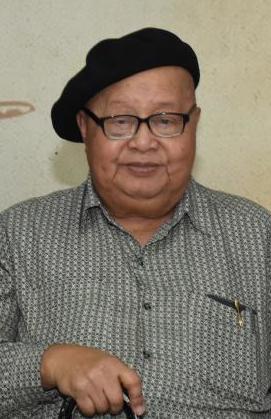
Image by Development Academy of the Philippines
6th January 2019 🗓️ : Event - Muhammad V of Kelantan Muhammad V of Kelantan resigns as the Yang di-Pertuan Agong of Malaysia, becoming the first monarch to do so. "Sultan Muhammad V (Jawi: سلطان محمد ٥; born 6 October 1969) is Sultan of Kelantan since ascending to the throne in 2010. He previously reigned as the fifteenth Yang di-Pertuan Agong of Malaysia from 2016 until his abdication in 2019. He was proclaimed Sultan of Kelantan on 13 September 2010,..."
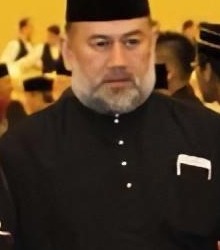
Image licensed under CC BY 4.0? by New Zealand Ministry of Foreign Affairs / New Zealand High Commission Kuala Lumpur. MFAT images licenced CC-BY according to terms here https://www.mfat.govt.nz/en/copyright/ and expansion here https://twitter.com/MFATNZ/status/1273066079514812417
6th January 2014 🗓️ : Event - Benefits Street The first episode of the documentary series Benefits Street aired on Channel 4, prompting discussion in the United Kingdom about welfare dependency. "Benefits Street is a British documentary series broadcast on Channel 4. It followed the lives of benefit claimants and showed them committing crimes, including a demonstration of how to shoplift, and portrayed a situation in which people are dependent on benefits and lack the motivation to seek..."
6th January 1974 🗓️ : Event - 1973 oil crisis In response to the 1973 oil crisis, daylight saving time commences nearly four months early in the United States. "In October 1973, the Organization of Arab Petroleum Exporting Countries (OAPEC) announced that it was implementing a total oil embargo against the countries that had supported Israel at any point during the Fourth Arab–Israeli War, which began after Egypt and Syria launched a large-scale surprise..."

Image by Macrotrends
6th January 1924 🗓️ : Birth - Kim Dae-jung Kim Dae-jung, South Korean soldier and politician, 8th President of South Korea, Nobel Prize laureate (d. 2009) "Kim Dae-jung (Korean: 김대중; Hanja: 金大中; Korean pronunciation: [kim.dɛ.dʑuŋ]; 6 January 1924 – 18 August 2009), often referred to by his initials DJ, was a South Korean politician and activist who served as the 8th (15th election) president of South Korea from 1998 to 2003. He was a 2000 Nobel Peace..."

Image licensed under KOGL Type 1? by 대한민국 국가기록원
6th January 1822 🗓️ : Birth - Heinrich Schliemann Heinrich Schliemann, German archaeologist and businessman (d. 1890) "Johann Ludwig Heinrich Julius Schliemann (German: [ˈʃliːman]; 6 January 1822 – 26 December 1890) was a German businessman and an influential amateur archaeologist. He was an advocate of the historicity of places mentioned in the works of Homer and an archaeological excavator of Hisarlik, now..."

Image licensed under CC BY-SA 4.0? by
Ed. Schultze Hofphotograph Heidelberg Plöckstrasse 79
6th January 🗓️ : Holiday - Christian Feast day: January 6 (Eastern Orthodox liturgics) "January 5 - Eastern Orthodox liturgical calendar - January 7 All fixed commemorations below are observed on January 19 by Eastern Orthodox Churches on the Old Calendar.For January 6th, Orthodox Churches on the Old Calendar commemorate the Saints listed on December 24...."

Image by njk92
0 notes
Text
2 remarkable writers in different period and their contribution.
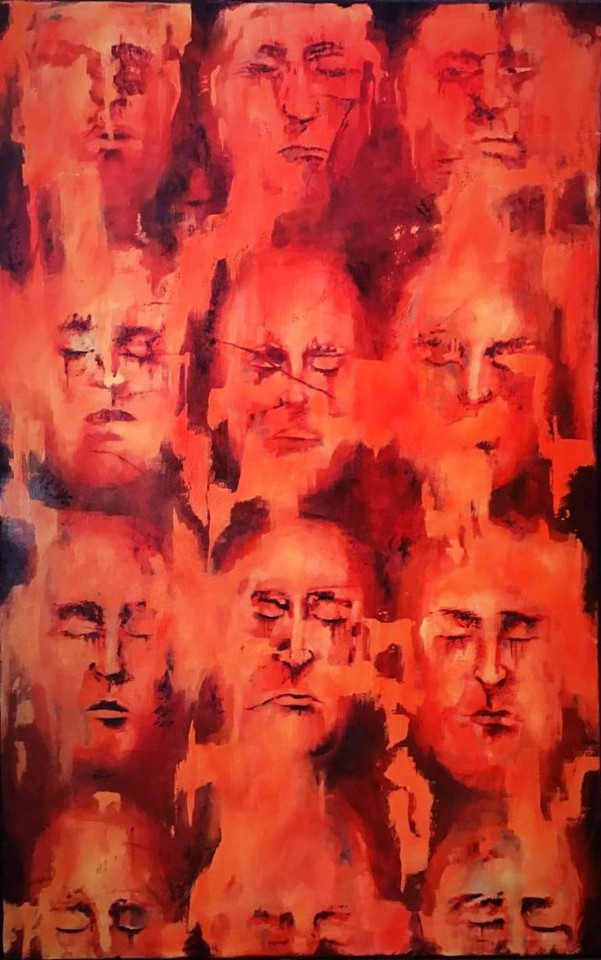
- period of Enlightenment
-period of American Regime
-Japanese period
-Philippines literature In english
Enlightenment:
José Rizal - was a Filipino polymath, nationalist and the most prominent advocate for reform in the Philippines during the Spanish colonial era. He is best known for his novels Noli Me Tangere and El Filibusterismo, which exposed the injustices and corruption of the Spanish colonial government.
Marcelo H. del Pilar - was a Filipino writer, journalist and lawyer who used his writing to expose the injustices and abuses of the Spanish colonial government. He founded the newspaper La Solidaridad, which became the voice of the Propaganda Movement, a group of Filipino intellectuals who sought reforms and advocated for Philippine independence.
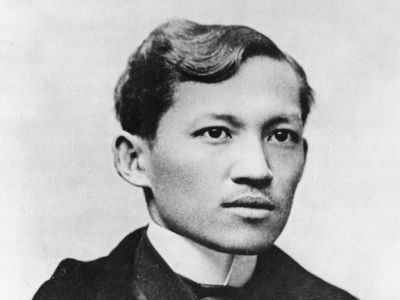
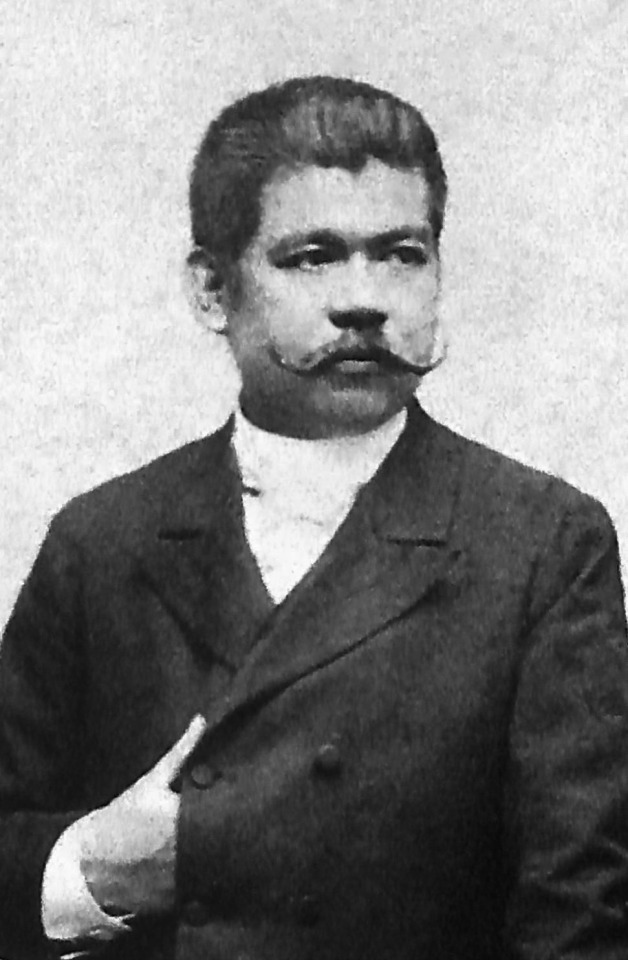
American Regime:
Nick Joaquin - was a Filipino writer, historian and journalist who wrote about Philippine history and culture during the American colonial period. He is best known for his works such as The Woman Who Had Two Navels and May Day Eve.
Paz Marquez Benitez - was a Filipino writer who is considered the first Filipino woman to publish a short story in English. Her short story, "Dead Stars", is considered a landmark in Philippine literature in English and is widely anthologized.
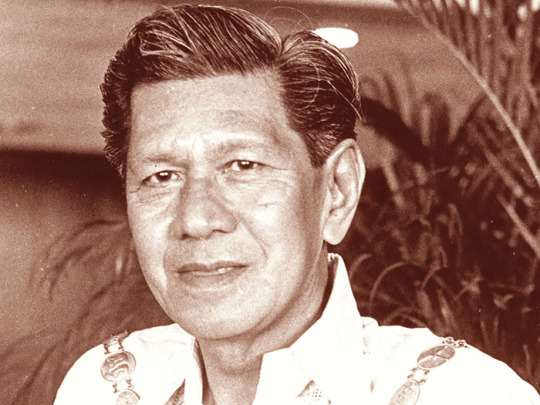
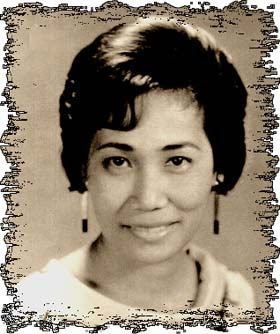
Japanese:
Carlos Bulosan - was a Filipino writer and labor activist who wrote about the struggles of Filipino migrant workers in the United States during the Japanese occupation of the Philippines. His most famous work, America Is in the Heart, is a semi-autobiographical novel about his experiences as a migrant worker in the United States.
Jose Garcia Villa - was a Filipino poet, writer, and painter who wrote during the Japanese occupation of the Philippines. His works are known for their formal experimentation and use of modernist techniques.
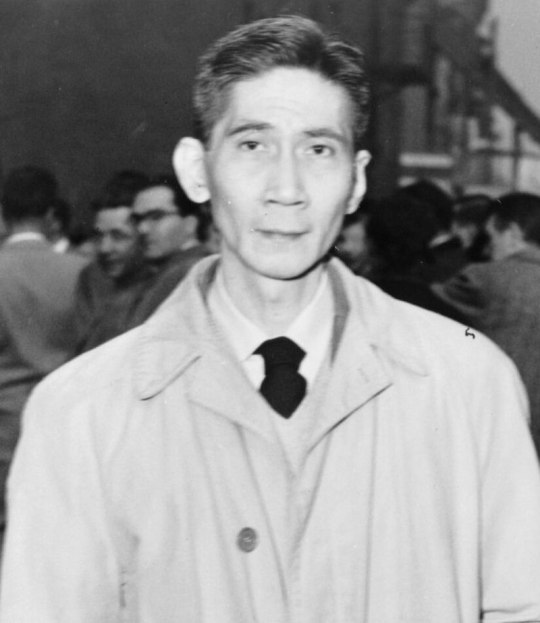
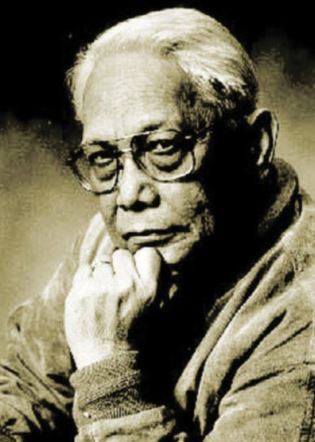
Philippine Literature in English:
N.V.M. Gonzalez - was a Filipino writer and one of the pioneers of Philippine literature in English. He is best known for his short stories and novels that depict the lives of ordinary Filipinos in rural and urban settings.
F. Sionil Jose - is a Filipino writer and journalist who is known for his novels that explore the themes of social injustice, poverty, and colonialism. His most famous work, the Rosales Saga, is a five-novel series that traces the history of the Philippines from Spanish colonialism to the present day.
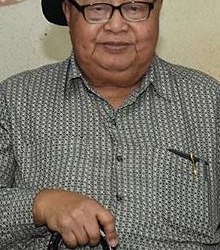
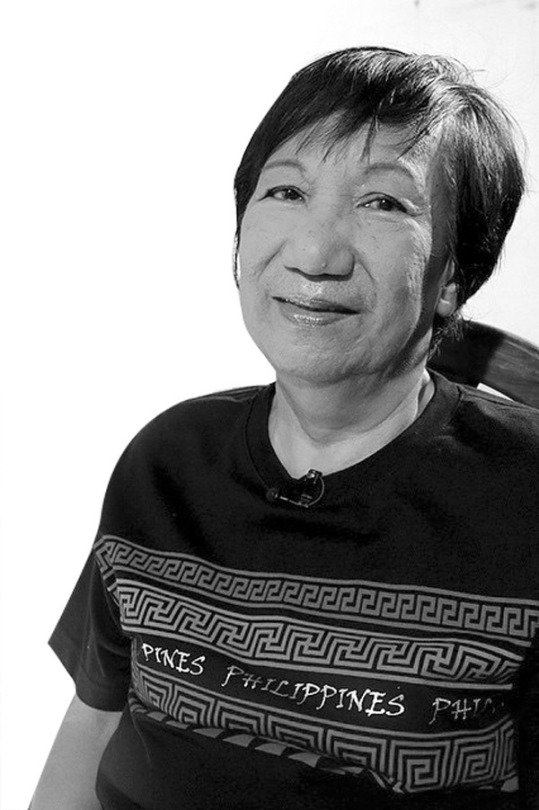
3 notes
·
View notes
Text
"PERIOD OF THIRD REPUBLIC"
Francisco Sionil José (December 3, 1924 – January 6, 2022) was a Filipino writer who was one of the most widely read in the English language.A National Artist of the Philippines for Literature, which was bestowed upon him in 2001, José's novels and short stories depict the social underpinnings of class struggles and colonialism in Filipino society. His works written in English have been translated into 28 languages, including Korean, Indonesian, Czech, Russian, Latvian, Ukrainian and Dutch.He was often considered the leading Filipino candidate for the Nobel Prize in Literature.
reference:https://up.edu.ph/celebrating-the-life-of-national-artist-f-sionil-jose-97/

0 notes
Text
2 REMARKABLE AUTHORS DURING THE PERIOD OF THIRD REPUBLIC

Amado V. Hernandez was a Filipino writer, poet, and social activist who was born on September 13, 1903, in Tagaytay, Cavite. He is best known for his works that deal with the struggles and exploitation of the Philippine working class. Hernandez was a prominent figure in the Philippine labor movement and was a member of the Communist Party of the Philippines.
Hernandez's literary works include the novel "Mga Ibong Mandaragit" (Island of the Great White Bird) and the poetry collection "Isang Dipang Langit" (A Stretch of Heaven). His works often depicted the lives of farmers and workers, and his commitment to social justice and equity greatly influenced Filipino literature.
Hernandez was arrested and imprisoned for his beliefs and activism during the Marcos regime. He spent nine years in prison and continued to write despite the harsh conditions. He was released from prison in 1979 and passed away on March 24, 1970.

N.V.M. Gonzalez, another remarkable author during the period of the Third Republic, was born on September 8, 1915, in Romblon, Philippines. He was a prolific writer and journalist whose works were influenced by the Philippines' rural landscapes and the experiences of Filipinos living in poverty.
Gonzalez's literary works include "The Bamboo Dancers," "The Bread of Salt," and "The Novels of F. Sionil Jose." His works often dealt with themes of identity, tradition, and modernity. He was recognized for his contributions to Philippine literature and was awarded the National Artist for Literature Award in 1997.
Gonzalez's writing also reflected his passion for journalism and was known for his writings on legal issues, politics, and social commentary. He passed away on November 28, 1999, leaving behind an important legacy in Philippine literary and journalistic history.
1 note
·
View note
Text
2 Remarkable Filipino writers in different Period
Period of the American Regime
1. Nick Joaquin

One of the most significant Filipino authors of the 20th century is Nick Joaquin. Many of Joaquin's essays, short stories, and novels addressed the complexities of Philippine history and culture. Themes of identity, colonialism, and the fight for freedom were frequently tackled in his writings. "The Woman Who Had Two Navels," "A Portrait of the Artist as a Filipino," and "Culture and History" are a few of his well-known pieces.
2. Paz Marquez Benitez

The short tale "Dead Stars" by Paz Marquez Benitez, a writer and educator, is probably her most well-known work. It is regarded as one of the earliest English-language short stories from the modern Philippines, having been published in 1925. Benitez's writings frequently focused on the tensions and inconsistencies that surfaced as the nation transitioned to a new colonial power and highlighted the experiences of Filipinos during the American era.
Japanese Period
1. Jose Garcia Villa

is remembered for his contributions to modernist poetry in the Philippines as a poet, author, and literary critic. Villa's writings were distinguished by their inventive language use and investigation of subjects like love, desire, and identity. Villa continued to produce and publish works that went against the censorship regulations and cultural norms that were in place during the Japanese period. "Have Come, Am Here" and "Selected Poems and New" are two of his significant works.
2. N.V.M. Gonzales

a writer and educator, is regarded as one of the most significant writers from the Philippines in the 20th century. Gonzalez is renowned for his vivid and poetic depictions of the Philippine countryside. His writings frequently tackle topics of identity, cultures, and the Filipino experience. Gonzalez continued to produce writings that captured the realities of life during the Japanese occupation. "The Bamboo Dancers" and "The Winds of April" are a couple of his best pieces.
Period of Activism
1. Jose "Pete" Lacaba

Poet, journalist, and activist Jose "Pete" Lacaba is renowned for his daring works that address social and political issues. He is arguably best known for the poem "Prometheus Unbound," which he wrote in protest of the murder and torture of his activist and writer brother. His writings include the screenplay for the movie "Bayan Ko: Kapit sa Patalim" and the poetry collection "Days of Disquiet, Nights of Rage".
2. Ninotchka Rosca

Novelist, journalist, and feminist activist Ninotchka Rosca utilized her work to highlight the oppression and injustice faced by women and other oppressed groups in the Philippines. "State of War" and "Twice Blessed" are her novels.
Period of New Society
1. F. Sionil Jose

is a novelist and journalist whose books frequently cover the history, society, and culture of the Philippines. The Rosales Saga, Po-on (also known as "Dusk"), Tree, and Viajero are his five volume novel series.
2. Lualhati Bautista

Novelist and screenwriter Lualhati Bautista is renowned for her depictions of the lives of women and other underprivileged groups in Philippine culture. The novel "Dekada 70," which portrays a middle-class family during the martial law era of the Marcos dictatorship, is her most well-known creation. "Bata, Bata... Pa'no Ka Ginawa?" and "Desaparesidos" are a couple of her other works.
1 note
·
View note
Text
Period of Philippine literature in English

Photo Credit: https://en.wikipedia.org/wiki/F._Sionil_Jos%C3%A9
F. Sionil Jose (1924-2022) - Born in Rosales, Pangasinan, F. Sionil Jose was a novelist, essayist, and journalist who was known for his socially and politically engaged works. He wrote extensively about the struggles of the working class and the injustices of Philippine society. Some of his most famous works include the five-part "Rosales Saga" and the novel "Viajero." Jose was also a recipient of numerous literary awards, including the Ramon Magsaysay Award for Journalism, Literature, and Creative Communication Arts.

Photo Credit:https://content.lib.washington.edu/exhibits/bulosan/index.html
Carlos Bulosan (1913-1956) - Born in Binalonan, Pangasinan, Carlos Bulosan was a novelist, poet, and labor activist who migrated to the United States in the 1930s. His works often explored the experiences of Filipino migrants and their struggles with racism and discrimination. Some of his most famous works include the semi-autobiographical novel "America Is in the Heart" and the collection of poetry "The Voice of Bataan." Bulosan was also a prominent figure in the American labor movement and an advocate for the rights of Filipino migrant workers.
1 note
·
View note
Note
Kind of curious but do you read contemporary Filipino novels? (If you do can u recommend good ones whshshshhsh)
I suppose you already know about Ricky Lee, Bob Ong and Nick Joaquin.
I'd like to use this opportunity to introduce F. Sionil Jose.

I remember reading My brother, My Executioner, and despite the heaviness, I remember it being quite wholesome. I'm always a sucker for kindness and funny writing style.
In addition, your question made me ponder that I am not actually a fan of contemporary Filipino Novels, because I always have this fear of reading unknowingly triggering topics like machismo, militaristic ruling, rape, sexism, offensive jokes, etc... Most of which are what middle-aged Filipino male authors would consider "tragedy" and "reality", when in fact, they shout "lack of research" and "lack of wittiness". ((And they don't put trigger warnings)). They just want to put darkness as shock value, and honestly, they don't make me satisfied as a reader. Dark elements in a good novel would usually want you to revolt, to see hope, and so on, but these contemporary filipino authors just make me feel unsafe and shameful of my own skin.
It's the illness of filipino novels. See GMA's unnecessary dark elements? Yes, that's it.
I hope you guys can recommend me good contemporary filipino novels, like Lualhati Bautista and beyond kind of young.
Anyway, here are some of the books and graphic novels I found on Shoppe from Adarna House account and others. I haven't read any of these. (you can't usually access these things from a library, hehe, poor ako).









#Philippines#Philippine literature#Reading#Sionil Jose#F. Sionil Jose#Recommendations#being filipino#filipino
34 notes
·
View notes